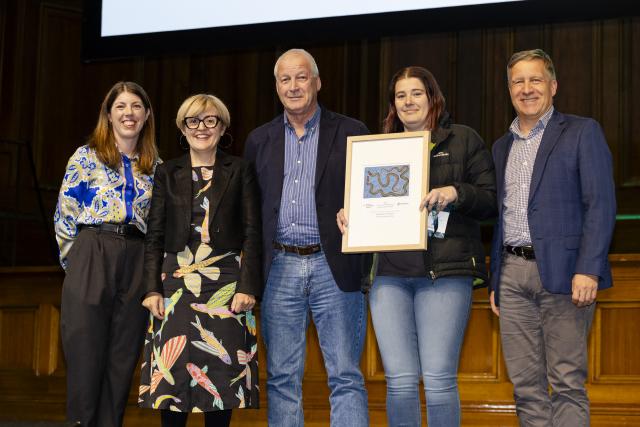
Anchor was proud to have received official recognition for its Rapid Response Program, winning the Award for Excellence in Ending Homelessness in the adult category at this year’s Victorian Homelessness Achievement Awards.
The Rapid Response program was conceived by Anchor to address the unique needs of those experiencing homelessness in the Yarra Ranges, with workers providing care and support to rough sleepers across the Yarra Ranges since 2018.
Speaking at the Victorian Homelessness Conference, Anchor CEO, Heidi Tucker, congratulated the Rapid Response team on their win, saying it was fantastic recognition for the incredible work they do.
“This award is perfect testament to the care and compassion of our Rapid Response team. The program could never have happened without the commitment from the Yarra Ranges Council to effectively address the needs of those experiencing homelessness, and the involvement of other community partners such as Inspiro, Ngwala and Stable One,” Ms Tucker said.
“We now know this program is vital for providing the right support for people who are sleeping rough in the areas we serve. What is abundantly clear is that people experiencing homelessness need services to be local and flexible in addressing their needs.”
The Rapid Response team’s founding principle was to provide a link between services in the local area and the person experiencing homelessness with a view of getting that person long term accommodation.
“Expecting people to move away from a place they belong to access services creates even more disruption and hardship in homeless people’s lives. They don’t want to feel shunted around or have to move to where services happen to be,” Ms Tucker said.
For one Yarra Ranges resident the simple offer of a motel room was the difference between him getting his life back on track and returning to his substance addiction, to which he said “will forever remain the catalyst to what saved me from returning to the despair and pain of addiction.”
“I had received treatment for my drug and alcohol issues and after an altercation I had been discharged from that program and dropped off in a park with my four suitcases,” he said.
“The wreckage of my past caused by myself during my drug abuse meant I had no stable accommodation to go to and if it wasn’t for Anchor and the help of Erin (Rapid Response worker), I would have ended up calling old, using friends to stay at their place instead of on the street.”
“Instead, Anchor provided me with a hotel to keep me safe and off the street and I remained drug free and got myself into another rehab facility.
“For this I will be forever grateful. They gave me the chance to continue my recovery, potentially saved my life, and gave my three year old daughter her father back!”
Anchor’s specialised team understands that throwing someone into accommodation immediately may in fact do the opposite of assisting in their recovery and until they are stable by being connected to services, sleeping rough may be the best course of action.
For another man, it was the providing of occasional food, a new tent, dry clothes and the assistance of applying to the Victorian Housing Register that gave him a new start in life.
“At the time, he would not have been able to sustain having his own accommodation, so the strength of the program is the client-centred support that is provided, ensuring people remain connected to health and wellbeing support as they need.
“The program has provided this man, and many others, with the support and stability needed to get them to the point of being ready to accept and move into housing as it becomes available.”
These two men are just two examples of the program’s success, with 17 people accepting respite accommodation, and 18 people connected to long-term accommodation within the pilot phase.
With rough sleeping relatively hidden from everyday view, as many people choose bushland and remote parts of the Yarra Ranges to sleep, the program was also designed to map rough sleepers in case of emergencies like bushfires, floods or storms.
This too has alleviated the strain on police and other emergency services who were ill equipped to provide the necessary support.
Ms Tucker noted that services such as Rapid Response are rare, with more investment into local outreach programs in areas such as the Yarra Ranges desperately needed.
“We have been able to support people experiencing extreme hardship to overcome challenges and get back on track,” she said.
“This program is proof that when you work with people and bring the community together, you can really make a difference.”







